DMCIT 2024 Speakers
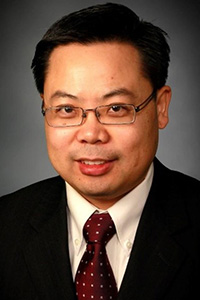
Director, Innovation Centre for Information Engineering
Editor-in-Chief, Sensors (Communications Section)
Western University, Canada
Speech Title: 6G: Beyond Communications Capabilities, Enabling Technologies, and Emerging Vertical Applications
Biography: Xianbin Wang (Fellow, IEEE) received his Ph.D. degree in electrical and computer engineering from the National University of Singapore in 2001.
He is a Professor and a Tier-1 Canada Research Chair in 5G and Wireless IoT Communications with Western University, Canada. Prior to joining Western University, he was with the Communications Research Centre Canada as a Research Scientist/Senior Research Scientist from 2002 to 2007. From 2001 to 2002, he was a System Designer at STMicroelectronics. His current research interests include 5G/6G technologies, Internet of Things, machine learning, communications security, and intelligent communications. He has over 600 highly cited journals and conference papers, in addition to over 30 granted and pending patents and several standard contributions.
Dr. Wang is a Fellow of the Canadian Academy of Engineering and a Fellow of the Engineering Institute of Canada. He has received many prestigious awards and recognitions, including the IEEE Canada R. A. Fessenden Award, Canada Research Chair, Engineering Research Excellence Award at Western University, Canadian Federal Government Public Service Award, Ontario Early Researcher Award, and nine Best Paper Awards. He was involved in many IEEE conferences, including GLOBECOM, ICC, VTC, PIMRC, WCNC, CCECE, and CWIT, in different roles, such as General Chair, TPC Chair, Symposium Chair, Tutorial Instructor, Track Chair, Session Chair, and Keynote Speaker. He serves/has served as the Editor-in-Chief, Associate Editor-in-Chief, and editor/associate editor for over ten journals. He was the Chair of the IEEE ComSoc Signal Processing and Computing for Communications (SPCC) Technical Committee and is currently serving as the Central Area Chair of IEEE Canada.
……<Personal webpage>
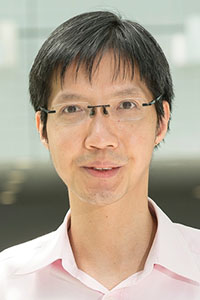
The Hong Kong University of Science and Technology, Hong Kong
Speech Title: Finding the User’s Favorite Tuple in the Database
Biography: Raymond Chi-Wing Wong is a Professor in Computer Science and Engineering (CSE) of The Hong Kong University of Science and Technology (HKUST). He is currently the associate head of Department of Computer Science and Engineering (CSE). He was the associate director of the Data Science & Technology (DSCT) program (from 2019 to 2021), the director of the Risk Management and Business Intelligence (RMBI) program (from 2017 to 2019), the director of the Computer Engineering (CPEG) program (from 2014 to 2016) and the associate director of the Computer Engineering (CPEG) program (from 2012 to 2014). He received the BSc, MPhil and PhD degrees in Computer Science and Engineering in the Chinese University of Hong Kong (CUHK) in 2002, 2004 and 2008, respectively. In 2004-2005, he worked as a research and development assistant under an R&D project funded by ITF and a local industrial company called Lifewood.
He received 40 awards. He published 104 conference papers (e.g., SIGMOD, SIGKDD, VLDB, ICDE and ICDM), 39 journal/chapter papers (e.g., TODS, DAMI, TKDE, VLDB journal and TKDD) and 1 book. He reviewed papers from conferences and journals related to data mining and database, including VLDB conference, SIGMOD, TODS, VLDB Journal, TKDE, TKDD, ICDE, SIGKDD, ICDM, DAMI, DaWaK, PAKDD, EDBT and IJDWM. He is a program committee member of conferences, including SIGMOD, VLDB, ICDE, KDD, ICDM and SDM, and a referee of journals, including TODS, VLDBJ, TKDE, TKDD, DAMI and KAIS.
His research interests include database, data mining and artificial intelligence.
<Personal webpage>

Xi'an Jiaotong-Liverpool University, China
Speech Title:Input Space Partitioning for Machine Learning
Biography: Steven Guan received his BSc. from Tsinghua University and M.Sc. & Ph.D. from the University of North Carolina at Chapel Hill. He is currently a Professor at Xi'an Jiaotong-Liverpool University (XJTLU) and Honorary Professor at University of Liverpool. He served the head of department position at XJTLU for 4.5 years, creating the department from scratch and now in shape. Before joining XJTLU, he was a tenured professor and chair in intelligent systems at Brunel University, UK.
Prof. Guan has worked in a prestigious R&D organization for several years, serving as a design engineer, project leader, and department manager. After leaving the industry, he joined the academia for three and half years. He served as deputy director for the Computing Center and the chairman for the Department of Information & Communication Technology. Later he joined the Electrical & Computer Engineering Department at National University of Singapore as an associate professor for 8 years.
Prof. Guan’s research interests include: machine learning, computational intelligence, big data analytics, mobile commerce, modeling, networking, personalization, security, and pseudorandom number generation. He has published extensively in these areas, with 140+ journal papers and 200+ book chapters or conference papers. He has chaired, delivered keynote speech for 100+ international conferences and served in 190+ international conference committees and 20+ editorial boards. There are quite a few inventions from Prof. Guan including Generalized Minimum Distance Decoding for Majority Logic Decodable Codes, Prioritized Petri Nets, Self-Modifiable Color Petri Nets, Dynamic Petri Net Model for Iterative and Interactive Distributed Multimedia Presentation, Incremental Feature Learning, Ordered Incremental Input/Output Feature Learning, Input/Output Space Partitioning for Machine Learning, Recursive Supervised Learning, Reduced Pattern Training using Pattern Distributor, Contribution Based Feature Selection, Incremental Genetic Algorithms, Incremental Multi-Objective Genetic Algorithms, Decremental Multi-objective Optimization, Multi-objective Optimization with Objective Replacement, Incremental Hyperplane Partitioning for Classification, Incremental Hyper-sphere Partitioning for Classification, Controllable Cellular Automata for Pseudorandom Number Generation, Self Programmable Cellular Automata, Configurable Cellular Automata, Layered Cellular Automata, Transformation Sequencing of Cellular Automata for Pseudorandom Number Generation, Open Communication with Self-Modifying Protocols, etc. <Personal webpage>

Feng Chia University, Taiwan ROC
Speech Title: Sharing Secrets Using Dual Images with Cheating Detection
Biography: Professor Chang has worked on many different topics in information security, cryptography, multimedia image processing and published several hundreds of papers in international conferences and journals and over 37 books. He was cited over 46,765 times and has an h-factor of 98 according to Google Scholar. Several well-known concepts and algorithms were adopted in textbooks. He also worked with the National Science Council, Ministry of Technology, Ministry of Education, Ministry of Transportation, Ministry of Economic Affairs and other Government agencies on more than 100 projects and holds 33 patents, including one in US and sixteen in China. He served as Honorary Professor, Consulting Professor, Distinguished Professor, Guest Professor at over 60 academic institutions and received Distinguished Alumni Award's from his Alma Master's. He also served as Editor or Chair of several international journals and conferences and had given almost a thousand invited talks at institutions including Chinese Academy of Sciences, Academia Sinica, Tokyo University, Kyoto University, National University of Singapore, Nanyang Technological University, The University of Hong Kong, National Taiwan University and Peking University. Professor Chang has mentored 7 postdoctoral, 67 PhD students and 202 master students, most of whom hold academic positions at major national or international universities. He has been the Editor-in-Chief of Information Education, a magazine that aims at providing educational materials for middle-school teachers in computer science. He is a leader in the field of information security of Taiwan. He founded the Chinese Cryptography and Information Security Association, accelerating information security the application and development and consulting on the government policy. He is also the recipient of several awards, including the Top Citation Award from Pattern Recognition Letters, Outstanding Scholar Award from Journal of Systems and Software, and Ten Outstanding Young Men Award of Taiwan. He was elected as a Fellow of IEEE in 1998, a Fellow of IET in 2000, a Fellow of CS in 2020, an AAIA Fellow in 2021. <Personal webpage>
Past Speakers of DMCIT

Norman C. Beaulieu
Beijing University of Posts and Telecommunications, China
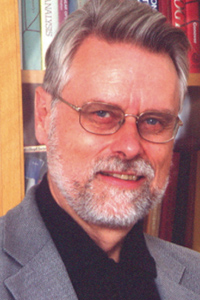
Anders Lindquist
Shanghai Jiao Tong University, China
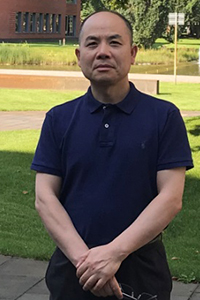
Yulin Wang
Wuhan University, China

Shahram Latifi
University of Nevada, Las Vegas, USA
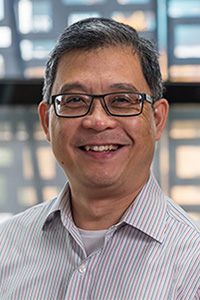
Guandong Xu
University Technology of Sydney, Australia
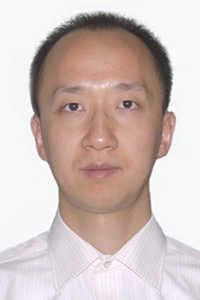
Yucong Duan
Hainan University, China
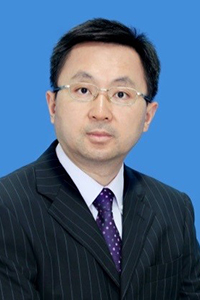
Ce Zhu
University of Electronic Science and Technology of China, China

David Zhang
Hong Kong Polytechnic University, Hong Kong S. A. R., China
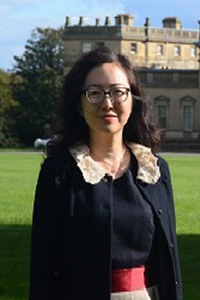
Yan Yang
Southwest Jiaotong University, China
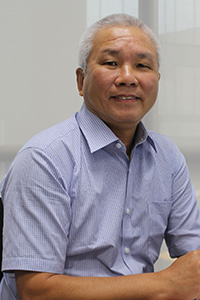
Edmund Lai
Auckland University of Technology, New Zealand
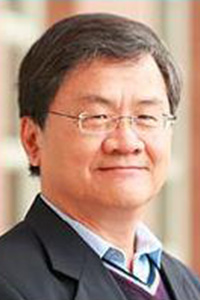
Arbee L.P. Chen
Asia University, Taiwan, ROC
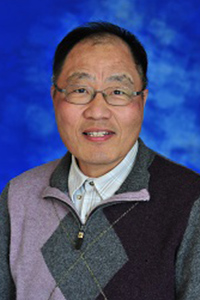
Chong-Yung Chi
National Tsinghua University, Taiwan, ROC
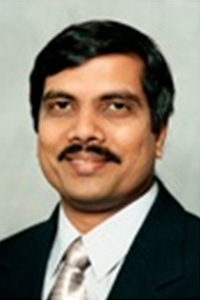
Xavier Fernando
Ryerson University, Canada

Simon Fong
University of Macau, Macau,China

Kaizhu Huang
Duke Kunshan University, China
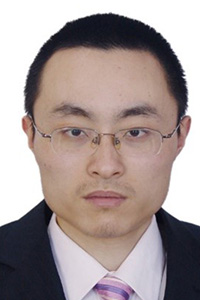
Yudong Zhang
The University of Leicester, UK

João Alexandre Lôbo Marques
University of Saint Joseph, Taipa, Macau SAR, China
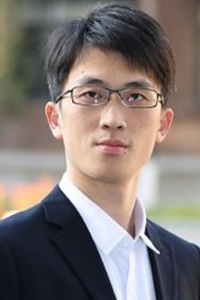
Miaowen Wen
South China University of Technology, China

Steven Guan
Xi'an Jiaotong-Liverpool University, China
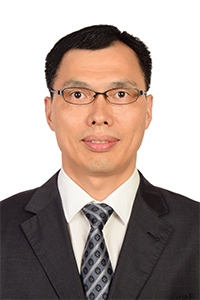
Tianrui Li
Southwest Jiaotong University, China
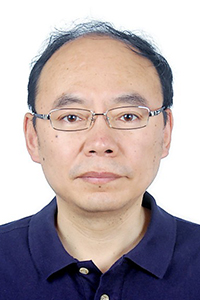
Jie Yang
Shanghai Jiao Tong University, China
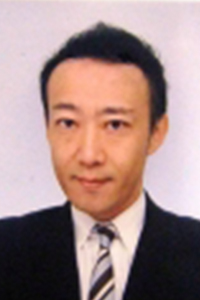
Kenji Yamanishi
University of Tokyo, Japan
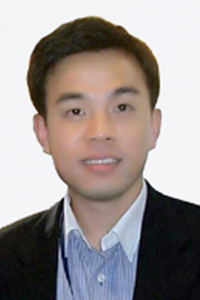
Yiu Ming Cheung
Hong Kong Baptist University, Hong Kong S. A. R., China
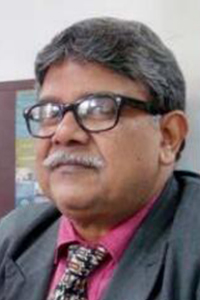
Rathindranath Maiti
Indian Institute of Technology, Kharagpur, India
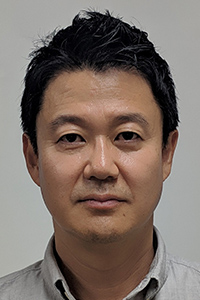
Kwang Sik Chung
Korea National Open University, South Korea
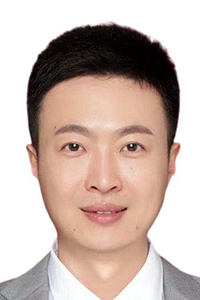
Yang Yue
Xi'an Jiaotong University, China
